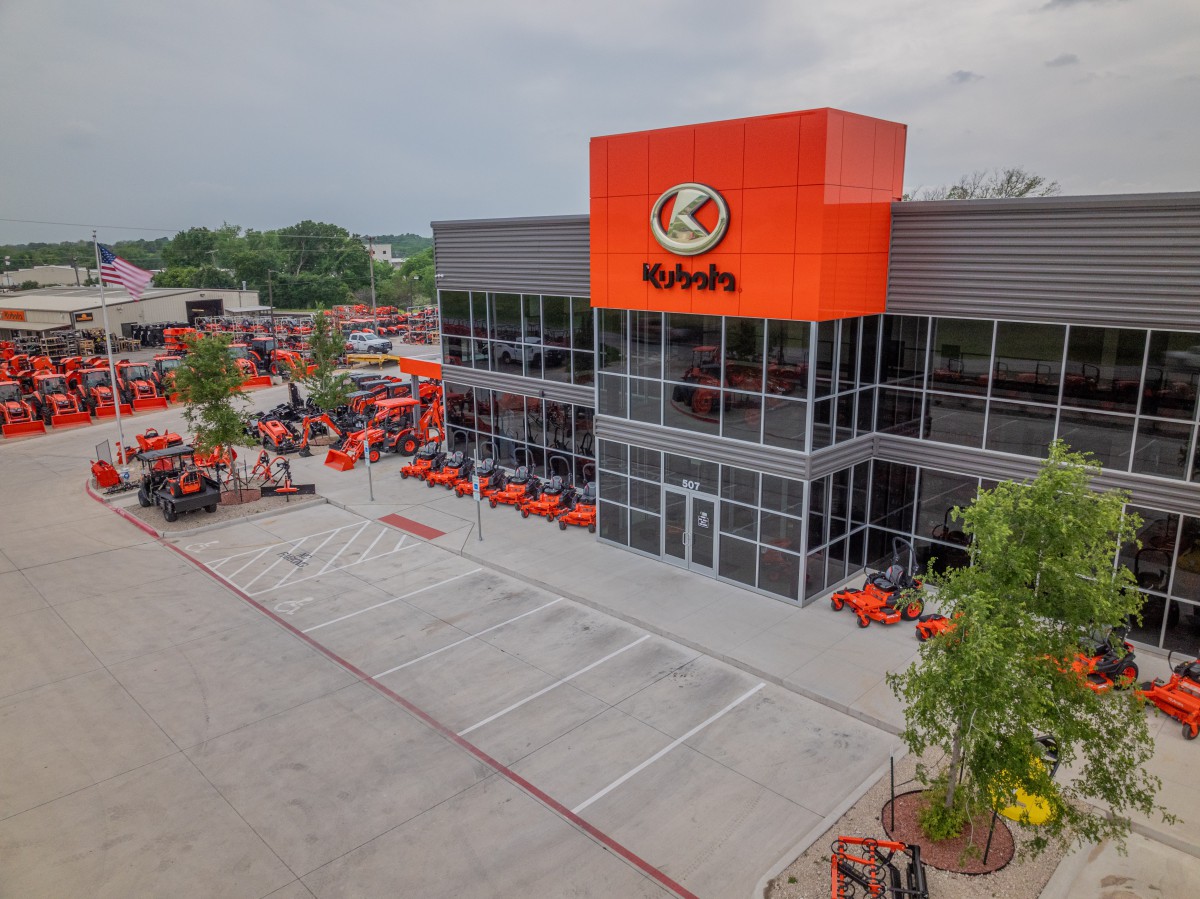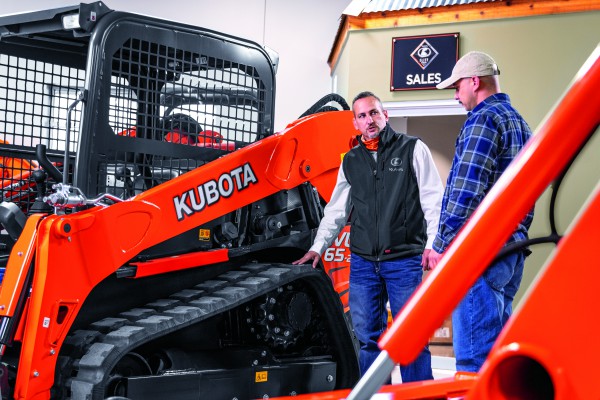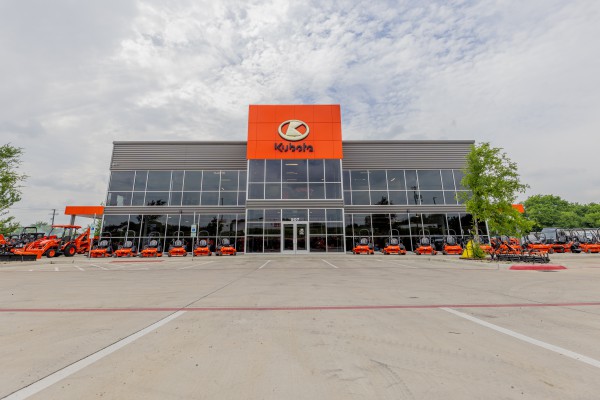
Financing makes Kubota equipment affordable and accessible for businesses and individuals. Buying machinery outright can be expensive, especially for farmers, contractors, and landowners. Flexible financing options allow buyers to spread costs over time while using their equipment.
Loans, leasing, and special promotions offer different benefits. Each option depends on budget, credit score, and business needs. Understanding monthly payments, interest rates, and loan terms helps in making informed decisions.
This guide outlines Kubota financing options, benefits, drawbacks, and best practices, providing the framework for Finance Your Case IH Equipment to ensure affordable payments and successful loan approvals.
Exploring Kubota Financing Options
Kubota offers multiple financing solutions to fit different budgets and business needs. Buyers can choose from loans, leasing, or special promotional offers. Each option provides unique benefits and payment structures. Understanding these choices helps buyers make informed financial decisions.
1. Kubota Equipment Loans
Loans allow buyers to own equipment immediately while spreading payments over time. This financing option is ideal for long-term investments and frequent equipment users.
-
Monthly payments cover both principal and interest.
-
Down payments vary based on credit score, loan amount, and lender requirements.
-
Loan terms range from 24 to 84 months, depending on the financing plan.
Kubota offers competitive interest rates through its in-house financing arm, Kubota Credit Corporation. Lower rates benefit buyers with strong credit histories and stable incomes.
Loans provide ownership advantages but require higher monthly payments. Buyers should consider their financial stability before committing to a loan.
2. Leasing Kubota Equipment
Leasing offers temporary access to Kubota equipment without full ownership. This option suits businesses with short-term needs or seasonal work.
-
Monthly lease payments are lower than traditional loan payments.
-
Buyers can upgrade equipment at the end of the lease term.
-
Some leases include maintenance coverage, reducing repair costs.
Leasing is flexible and cost-effective, but it comes with limitations. Usage restrictions may apply, and modifications are often prohibited.
At the end of the lease, buyers must return the equipment or renew the contract. Leasing is not ideal for those needing long-term ownership.
3. Special Offers & Promotions
Kubota frequently offers seasonal deals and promotional financing. These programs reduce upfront costs and make financing more accessible.
-
Zero or low APR financing is available for qualified buyers.
-
Cash rebates and trade-in bonuses lower the total purchase price.
-
Deferred payment plans allow buyers to delay initial payments.
Promotional offers lower financial strain but have strict eligibility requirements. Buyers should check availability and terms before applying.
Each financing option serves different needs and budgets. Choosing the right plan ensures affordable payments and financial stability.
Comparing Financing Options: Benefits & Drawbacks
Each Kubota financing option has advantages and limitations. Understanding these differences helps buyers select the best plan for their needs. Factors like ownership, monthly costs, and eligibility requirements influence the decision.
1. Kubota Equipment Loans
Loans are ideal for buyers wanting full ownership. This option suits those using Kubota equipment for long-term agricultural or construction projects.
Benefits:
-
Ownership from day one after financing is completed.
-
Flexible loan terms from 24 to 84 months, allowing buyers to adjust payments.
-
Potential tax benefits, as some businesses can deduct interest costs.
Drawbacks:
-
Higher monthly payments compared to leasing.
-
Requires a down payment, often between 10% and 20%.
-
Credit score impacts loan approval and interest rates.
Loans work best for long-term investments where ownership is a priority.
2. Leasing Kubota Equipment
Leasing provides affordable access to equipment without ownership. It is popular among seasonal operators and businesses needing flexibility.
Benefits:
-
Lower monthly payments, freeing up business cash flow.
-
Maintenance coverage included in some lease agreements.
-
Upgrade options at the end of the lease term.
Drawbacks:
-
No ownership rights, meaning the equipment must be returned.
-
Usage restrictions may apply, limiting customization.
-
Higher long-term costs of leasing repeatedly.
Leasing is best for temporary needs or those preferring lower upfront costs.
3. Special Offers & Promotions
Kubota offers seasonal financing deals to lower costs. These deals provide limited-time discounts and incentives.
Benefits:
-
Low or zero APR reduces interest expenses.
-
Cash rebates and trade-in bonuses lower total purchase costs.
-
Deferred payment plans allow buyers to start paying later.
Drawbacks:
-
Limited availability, with promotions running only during certain periods.
-
Strict eligibility requirements, favoring buyers with strong credit.
Promotional offers help buyers save money, but they aren’t always available.
|
Financing Option |
Benefits |
Drawbacks |
|
Loans |
Full ownership, flexible terms, tax benefits |
Higher monthly payments, requires down payment |
|
Leasing |
Lower monthly costs, maintenance included, upgrade options |
No ownership, possible usage restrictions |
|
Special Offers |
Low APR, rebates, reduced upfront costs |
Limited availability, strict eligibility criteria |
Loans suit long-term investments, leasing is best for short-term needs, and promotions reduce financing costs for eligible buyers. Selecting the right plan ensures affordable payments and financial stability.
Calculating Affordability: Monthly Payments & Down Payments
Understanding monthly payments and down payments helps buyers determine what they can afford. Loan terms, interest rates, and financing options affect total costs over time. Careful budgeting ensures sustainable financing and prevents financial strain.
1. Monthly Payment Calculation
Monthly payments depend on loan amount, interest rate, and repayment term. These factors determine how much buyers pay each month.
-
A higher interest rate increases total loan costs over time.
-
Shorter loan terms reduce interest but increase monthly payments.
-
Longer loan terms lower payments but increase total interest paid.
Leasing offers lower monthly payments than loans but does not build equity. Payments are made for the lease period, after which the equipment must be returned or purchased.
Using Kubota’s financing calculator helps buyers estimate monthly costs based on loan amount and term length. This tool allows accurate budgeting and ensures affordability.
2. Down Payment Considerations
A larger down payment reduces monthly payments and overall financing costs. Most lenders require a 10–20% down payment, depending on credit history and loan terms.
-
Higher down payments lead to lower interest costs over the loan period.
-
Buyers with larger down payments often receive faster loan approvals.
-
Some Kubota promotions offer zero-down financing for qualified buyers.
A good credit score improves financing terms and reduces interest rates. Buyers with strong credit may qualify for lower down payments or better promotional offers.
Assessing total costs, loan terms, and down payment options ensures manageable monthly payments. A well-planned financing strategy prevents financial stress and supports long-term affordability.
Improving Loan Approval Chances

Lenders evaluate credit scores, financial stability, and business history before approving financing. A strong financial profile improves loan eligibility and ensures better interest rates. Taking proactive steps increases approval chances and reduces borrowing costs.
1. Build and Maintain a Strong Credit Score
A high credit score helps buyers secure lower interest rates and better loan terms. Lenders consider credit history and debt levels before approving financing.
-
Pay existing loans and credit card balances on time.
-
Avoid new credit inquiries before applying for a Kubota loan.
-
Review credit reports for errors and dispute inaccuracies.
A credit score above 700 increases eligibility for low-interest financing. Borrowers with lower scores may face higher rates or stricter loan conditions.
2. Prepare a Business Plan (For Commercial Buyers)
Commercial buyers need a structured business plan to improve loan approval chances. Lenders assess financial stability and repayment ability before offering financing.
-
Outline how the equipment will be used and its expected impact.
-
Provide income records and cash flow statements to show financial health.
-
Demonstrate business growth potential and ability to repay the loan.
A well-prepared plan reassures lenders and increases approval odds. Strong financial documentation builds confidence and credibility.
3. Maintain a Stable Income & Financial History
Lenders prioritize steady income when evaluating financing applications. A reliable financial record improves the likelihood of loan approval.
-
Keep bank statements and tax records well-organized.
-
Show consistent earnings or proof of business revenue.
-
Reduce existing debts before applying for financing.
A stable financial history ensures lenders of repayment ability. Strong credit, business planning, and financial management help buyers secure better loan terms and lower costs.
Ensuring a Smooth Financing Process
Securing Kubota financing requires proper preparation and documentation. A structured approach streamlines loan approvals and prevents unexpected delays. Understanding lender requirements and financing terms improves the chances of a successful application.
1. Gather Necessary Documents
Lenders require financial and personal documents to assess creditworthiness and repayment ability. Having the necessary paperwork reduces processing time and speeds up approval.
-
Personal or business financial statements provide proof of financial stability.
-
Proof of income (pay stubs, tax returns, or bank statements) verifies earnings.
-
Credit reports show past borrowing history and outstanding debts.
-
Kubota equipment details (model, price, and intended use) are required.
Well-organized documentation boosts approval chances and helps lenders determine suitable financing terms.
2. Compare Lenders & Financing Offers
Different lenders provide varying interest rates, loan terms, and eligibility criteria. Comparing multiple options ensures the best deal and lowest costs.
-
Kubota Credit Corporation, Kubota’s in-house financing arm, offers exclusive deals, including low-interest loans and rebates.
-
Local banks and credit unions may provide personalized service and flexible loan terms.
-
Online lenders offer quick approvals but may have higher interest rates.
Evaluating loan fees, repayment flexibility, and interest rates prevents unexpected costs. Selecting the best lender saves money and ensures manageable payments.
3. Read the Fine Print
Understanding financing agreements prevents hidden costs and financial surprises. Buyers should review terms before signing a contract.
-
Check for prepayment penalties or additional fees.
-
Ensure financing terms match business or farming needs.
-
Verify eligibility for special promotions or rebates.
Reading the contract carefully protects buyers from unexpected obligations. A well-informed decision ensures affordable and transparent financing.
Leveraging Dealer Assistance for Financing Guidance
Kubota dealerships offer expert financial guidance to help buyers navigate the loan application process. Dealerships provide detailed information on financing plans, eligibility requirements, and special offers.
1. Benefits of Working with a Kubota Dealer
Kubota dealers work closely with financing institutions to offer tailored solutions. Buyers benefit from:
-
Access to exclusive financing promotions such as low APR and cashback offers.
-
Assistance with loan applications and document submission.
-
Guidance on selecting the best financing option for specific needs.
Dealers understand customer budgets, business needs, and payment preferences, ensuring financing fits financial goals.
2. Scheduling a Financing Consultation
Potential buyers should visit a Kubota dealer for a personalized consultation. This allows for:
-
A breakdown of financing options and their benefits.
-
An estimate of monthly payments based on loan terms.
-
A discussion of trade-in options to reduce equipment costs.
Consultations help buyers make informed financial decisions while exploring the best available financing options.
3. Taking Advantage of Dealer Promotions
Kubota dealerships frequently offer limited-time promotions to lower equipment costs. These deals include:
-
Zero-down payment financing for eligible buyers.
-
Cashback offers to reduce the total loan amount.
-
Flexible payment structures tailored to business needs.
Checking with a local Kubota dealer ensures buyers maximize savings and secure the best financing terms.
Evaluating Long-Term Financial Impact of Financing

Choosing the right financing option requires assessing long-term financial commitments. Buyers should consider total repayment costs, depreciation, and operational expenses.
1. Calculating Total Loan Repayment Costs
Financing extends payments over several years, impacting long-term finances. Buyers should:
-
Add up monthly payments over the full loan term.
-
Factor in interest costs based on APR and loan duration.
-
Include down payment and maintenance costs in total expenses.
Understanding total repayment ensures buyers budget effectively and avoid financial strain.
2. Factoring in Equipment Depreciation
Kubota equipment holds value well, but depreciation affects resale price. Buyers should:
-
Research expected depreciation rates for their chosen model.
-
Consider resale value if trading in equipment later.
-
Evaluate if leasing is a better alternative for short-term needs.
Depreciation plays a role in long-term financial planning and should be considered when choosing a financing method.
3. Managing Operational Expenses Alongside Loan Payments
Beyond financing, buyers must budget for operational costs. These include:
-
Fuel and maintenance expenses for daily operation.
-
Insurance costs to protect against damage and liability.
-
Replacement parts or repair services over time.
A clear financial plan ensures buyers can cover all costs while managing loan payments.
Understanding Tax Benefits and Incentives for Financing
Kubota equipment financing may offer tax benefits for businesses and farm owners. Understanding deductions and incentives helps buyers save money on overall costs.
1. Section 179 Tax Deduction for Equipment Purchases
In the U.S., Section 179 allows businesses to deduct the full cost of equipment purchases within the tax year. This applies to both financed and leased equipment.
-
Eligible buyers can deduct up to a specific limit on new equipment.
-
The deduction reduces taxable income, lowering overall tax liability.
-
Financing allows buyers to claim tax benefits while making payments.
Buyers should consult a tax professional to confirm eligibility and deduction limits.
2. Interest Deductions on Equipment Loans
Businesses financing Kubota equipment may deduct loan interest as a business expense.
-
Interest payments reduce taxable income, lowering business taxes.
-
Higher-interest loans offer larger deductions, but cost more overall.
-
Keeping detailed financial records helps with tax compliance and claims.
Understanding tax benefits helps offset financing costs, making equipment purchases more affordable.
3. State and Federal Agricultural Incentives
Farmers and agricultural businesses may qualify for state or federal equipment incentives.
-
Some programs offer grants or subsidies for equipment purchases.
-
Low-interest agricultural loans help farmers access financing easily.
-
Energy-efficient equipment may qualify for green tax credits.
Checking local and federal agricultural programs can provide additional financial relief.
Ensuring Smart Financing Decisions
Financing Kubota equipment requires careful planning and research. Choosing the right financing option helps manage costs and maximize benefits while ensuring affordable payments.
Understanding monthly payments, down payments, and credit requirements ensures financial stability. For personalized financing advice, visit your local Kubota dealer. Experts can help compare options, secure the best deal, and guide you through the financing process. Contact your nearest dealership today to explore available financing solutions.

